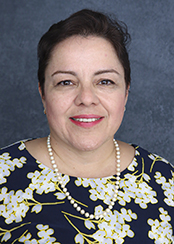Gonzalez-Hernandez Lab
The Gonzalez-Hernandez Health Language Processing Laboratory aims to improve healthcare delivery and public health surveillance through innovations in automated language processing. Working with clinicians, epidemiologists and other domain experts, our laboratory brings internationally recognized experts in natural language processing, machine learning, and artificial intelligence to develop and deploy innovative, scalable solutions for the systematic mining of free text in real-world data (such as medical records, published literature and user-generated content). We promote open, reproducible research in health language processing through publications in high impact journals that includes annotated data sets and open-source code or models, and through the organization of workshops and shared tasks.

Personal Statement
I believe that at least part of the answers to the great unknowns about diseases (how they originate or spread, how they evolve and why treatments work for some people and not others, for example) can be found in text contained in the myriad of publications, records and statements by researchers, clinicians and the patients themselves. If only we enable the systematic analysis of such data, taking care of accounting for biases and other barriers, significant progress can be made towards actionable health solutions. That is my goal and that of my team, to work with domain experts to develop the most advanced natural language processing, machine learning and artificial intelligence methods to help answer these questions."
Graciela Gonzalez-Hernandez, PhD
Breakthrough Research
The Gonzalez-Hernandez Lab has been a pioneer in integrating natural language processing and artificial intelligence for digital epidemiology. Our language processing methods are open to the research community and are designed for portability, with applications to mining information from real world data such as electronic health records, published literature and social media. In the last 5 years, we have made available advanced tools like DeepADEMiner, Kusuri, and SEED for extracting adverse events, medication names and symptoms mentioned in Twitter and electronic health records.
Publications
Learn more about the recent research publications from the Gonzalez-Hernandez Lab.
Laboratory Team
Learn more about the scientists, faculty members, investigators and other healthcare professionals of the Gonzalez-Hernandez Lab, whose dedicated efforts lead to groundbreaking discoveries.
Job Opportunities
We are actively recruiting students and postdocs to be our colleagues and expand lab knowledge and expertise to make important breakthroughs.
Collaborations
The Gonzalez-Hernandez Lab collaborates with a wide range of investigators within Cedars-Sinai and institutions around the world.
- Ian M. Campbell, MD, PhD
- Katherine Courtright, MD, MSHP
- Lauren Dutcher, MD, MSCE
- Jeffrey S. Gerber, MD, PhD
- Su Golder, PhD
- Robert Gross, MD, MSCE
- Robert Grundmeier, MD
- Keith W. Hamilton, MD
- Sean Hennessy, PharmD, PhD
- Ari Klein, PhD
- Ebbing Lautenbach, MD, MPH, MSCE
- Lisa D. Levine, MD, MSCE
- Karen O’Connor, MSc
- Matthew Scotch, PhD
- Robin Stevens, PhD, MPH
Have Questions or Need Help?
Pacific Design Center
700 N. San Vicente Blvd., Suite G540
West Hollywood, CA 90069